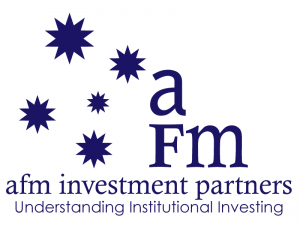Indonesia’s booming economy provides Australian banks and investment houses with a host of financial opportunities, particularly in its nascent pension system. Its retirement savings sector is set for rapid growth, which currently covers only 5 per cent of its workforce. In contrast, Australia’s two-tiered pension system is considered to be among the best in the world, covering almost 100 per cent of the workforce.
Indonesia does not have a significant government-funded social security system. Pensions are tied to one’s employer as a defined benefit or a defined contribution program.
One of three state-owned enterprises (but not publicly funded) are then responsible for managing the actual investments: PT Taspen for civil servants, BPJS Manpower for private employees and PT Asabri for the armed forces. Asosiasi Dana Pensiun Indonesia, the Indonesian Pension Fund Association, recently visited Australia to meet with superannuation funds, industry bodies and think tanks. The message was clear: our pension industries can work together.
Indonesia’s current pension system
With about 20 per cent of the workforce who are net taxpayers and a population about 10 times the size of Australia (approximately 250 million), Indonesia has a different approach to its pension system. It is funded by deductions from an individual employee’s pay and contribution from employers as well, in a similar manner to Australia’s CSG.
There are four pension institutions serving Indonesian workers.
1. Corporate pension plan
A corporate pension plan is voluntarily set up by a company to manage its employees’ pension program (under a defined benefit or defined contribution program) or managed by independent financial institutions pension program (under a defined contribution program), both of which are mostly managed by the bank or insurance firm. The contributions average 5 per cent paid by employees and 10 per cent by employer. The ADPI (pension fund association) consists of 240 corporate pension plans and ADPLK (the financial institutions pension fund association) members comprise 24 independent financial institutions. The corporate pension plan and independent financial institution pension plan are responsible for administrating the pensions of private and state-owned enterprise employees. All the corporate pension plans and independent financial institutions currently have $US16 billion of funds under management, which covers 3.5 million workers.
2. PT TASPEN
PT Taspen is a government-owned enterprise responsible for administrating the pensions of Indonesia’s civil servants and government employees, excluding the armed forces. It currently has approximately 4.4m members and $US14bn of funds under management.
3. BPJS Manpower, previously PT Jamsostek (Persero)
The largest of Indonesia’s institution responsible for the employment accident insurance program, death benefit, old-age security and healthcare, which will start to be a mandatory scheme for all employees from July 2015. It administers the basic pensions and social guarantee of the nation’s private sector employees, including employees of state owned enterprises, who form the largest component of the overall labour force. As of 2013, Jamsostek had over 31m members and approximately $US150bn of funds under management. The basic national pension plan is still under discussion for under implementation.
4. PT Asabri
PT Asabri is the government-owned insurance firm responsible for administrating the pensions of Indonesia’s armed forces, which includes the army, navy, air force and national police service.
Working together
How can Australia help?
There are many openings for Australian industry associations and think tanks to collaborate with their Indonesian counterparts and co-operate around education, training, thought leadership, policy and regulatory development. Australian banks and investment houses can expand into the Indonesian market or to form partnerships with local firms. Importantly, our regulators should cooperate and over time develop common policies and regulations. Our neighbours could benefit from our expertise built up over decades, and we could benefit from their huge and growing marketplace.
We can co-operate in finance and investment. Firstly, Australia has globally recognised expertise in infrastructure investing — we lead the world. Our superannuation and sovereign funds can invest alongside Indonesian pension funds to invest in infrastructure where Australia has significant expertise with investment houses like Hastings and IFM and where Indonesia has a tremendous need to extend, develop and build airports, seaports and toll roads.
Second, industry associations like the Australian Institute of Superannuation Trustees and the Australian Centre for Financial Studies can partner with the Indonesian Pension Fund Association to develop joint training and education programs and courses and also hold joint conferences and seminars about investment opportunities and governance. Thirdly, our regulators could join together to develop common licensing and compliance regimes to ease and facilitate investment and partnership opportunities between investment houses, stockbrokers, super funds and other investors.
By John Donovan –
businessspectator.com.au